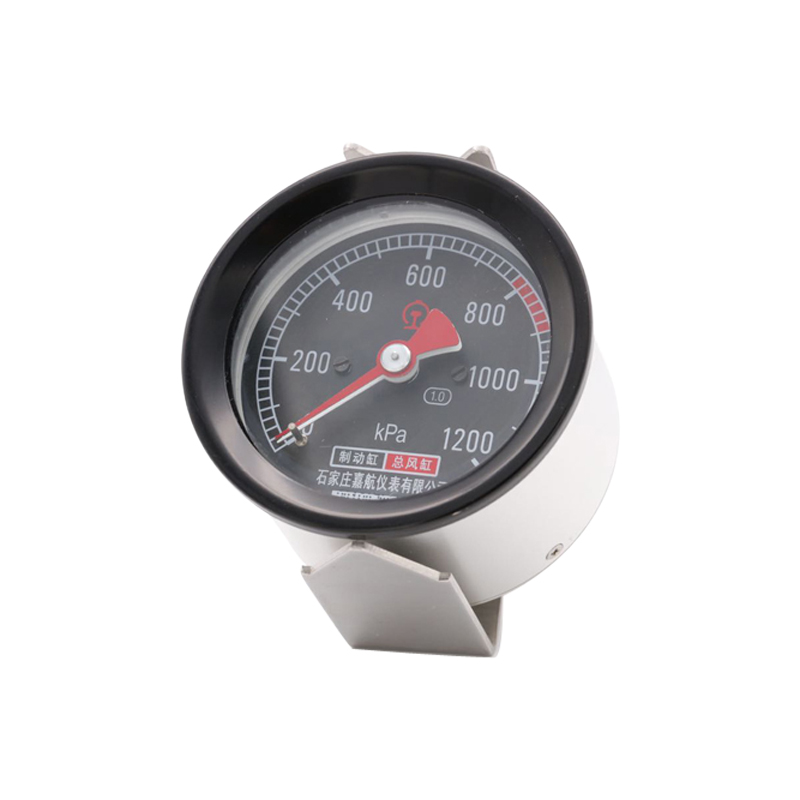
11 月 . 19, 2024 10:20 Back to list
piston-style differential pressure gauges products
Understanding Piston-Style Differential Pressure Gauges
Differential pressure measurement is crucial in countless industrial applications, ranging from HVAC systems to chemical processing plants. Among the various types of pressure measurement devices, piston-style differential pressure gauges stand out for their accuracy and reliability. This article will explore the key features, applications, advantages, and considerations when using piston-style differential pressure gauges.
What is a Piston-Style Differential Pressure Gauge?
Piston-style differential pressure gauges are devices designed to measure the difference in pressure between two points in a system. The mechanism consists of a piston that moves in response to pressure differentials. As the pressure on one side of the piston changes relative to the other side, it causes the piston to shift. This movement is translated into a readable output, which can be analog (a dial or gauge) or digital (a digital display).
The core of the device involves a sealed cylinder with a piston inside, with each side of the piston connected to different pressure sources. The design allows for highly sensitive measurements, making it suitable for applications where small pressure changes can have significant implications.
Key Features
1. Precision Measurement Piston-style gauges are engineered for high accuracy, often with calibration that allows for precise readings. 2. Durability Typically built from robust materials, these gauges can withstand harsh conditions, making them ideal for industrial environments. 3. Oil-Free Operation Many piston-style designs are oil-free, ensuring that the measurement medium remains uncontaminated and allowing for reliable readings in sensitive applications.
4. Wide Measurement Range They can be designed to measure a wide range of pressure differentials, accommodating various applications, from low to high pressure.
5. Customizable Many manufacturers offer customizable features, allowing users to tailor the gauge to specific needs concerning diameter, material, and measurement range.
Applications
Piston-style differential pressure gauges find applications in numerous scenarios
- HVAC Systems They are used to monitor filter conditions and airflow in heating, ventilation, and air conditioning systems, ensuring optimal performance and energy efficiency. - Chemical Processing In chemical plants, these gauges help monitor reactor pressures, facilitating safe operations and maintaining product quality.
- Water Treatment Differential pressure measurements are critical in filtration systems, helping operators determine when filters need cleaning or replacement.
- Pharmaceuticals In the pharmaceutical industry, maintaining a clean production environment is paramount
. Differential pressure gauges help monitor sterilization processes and validate cleanroom conditions.piston-style differential pressure gauges products

Advantages of Piston-Style Differentials
1. High Sensitivity The mechanical design of the piston allows these gauges to detect even minute changes in pressure, making them ideal for sensitive applications.
2. Ease of Maintenance The simple construction of piston-style gauges usually means that maintenance and servicing are less complicated compared to more intricate designs.
3. Versatility They can be utilized in various industries and applications, proving effective in different types of operations.
4. Non-intrusive Measurement Because the gauge measures the pressure differential rather than absolute pressures, it can function without being affected by atmospheric pressure changes.
Considerations When Using Piston-Style Gauges
While piston-style differential pressure gauges offer many benefits, there are considerations to keep in mind when selecting and deploying these devices
- Installation Requirements Proper installation is crucial to maintaining accuracy. Ensure that the gauge is installed as per the manufacturer's guidelines to avoid erroneous readings.
- Environmental Factors Consider the environmental conditions where the gauge will operate. Extreme temperatures or chemical exposure may impact performance, necessitating the selection of appropriate materials.
- Calibration Regular calibration is essential to ensure sustained accuracy over time. Users should establish a calibration schedule based on the application’s demands.
- Measurement Range Selecting a gauge with an appropriate measurement range based on the expected pressure differentials is vital. Underestimating or overestimating the range can lead to inaccurate readings or equipment damage.
Conclusion
Piston-style differential pressure gauges are vital tools in many industries, providing accurate and reliable measurements critical for operational efficiency and safety. Understanding their features, applications, and best practices for deployment will enable organizations to harness their full potential, ensuring optimal performance across various systems and processes. As industries continue to evolve, the demand for precise measurement tools like piston-style gauges will only grow, underscoring their importance in modern technology and engineering.
-
High-Precision 5 Valve Manifold Differential Pressure Gauge Suppliers
NewsApr.29,2025
-
High-Precision Diaphragm Vacuum Pressure Gauges Manufacturers & Quotes
NewsApr.29,2025
-
Omega Differential Pressure Gauges High Accuracy & Durability
NewsApr.28,2025
-
Low Pressure Differential Pressure Gauges Precision Solutions & Quotes
NewsApr.28,2025
-
Digital Diaphragm Pressure Gaauge Precision Measurement & OEM Quotes
NewsApr.28,2025
-
Differential Pressure Gauge China Price High-Accuracy & Best Quotes
NewsApr.28,2025
